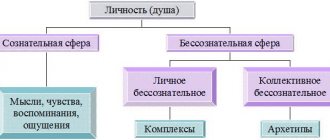A stuck personality type is an interesting character accentuation that contains both positive and negative traits. The quality of human life depends on their correct implementation. To do this, the “stuck” individual needs to carry out considerable psycho-correctional work on himself.
Mistrust is one of the main features
What is a stuck personality type?
Getting stuck in psychology is a mental state in which a person lingers on some feeling or event for a long time.
Additional Information. The following expressions are considered popular synonyms for this phenomenon: “sticky state” and “lingering character.”
Most often, such behavior is observed in affectively stagnant people of the paranoid type of accentuation. The stuck type of personality represents such an accentuation of character, which is characterized by excessive stability of affect.
Stuck-type thoughts are destructive for the individual himself.
Additional Information. Whatever emotions a person experiences, they should subside over time. After all, a discharge has occurred, negative or positive feelings have come out.
For people with the stuck type, this process proceeds differently: after a while, the affect does not end. As soon as a person mentally returns to the situation, emotions begin to rage again.
What to do?
Deep work on yourself, awareness of your difficulties and correction of the types of reactions to any irritants can help. That is, it is important to learn to test your fantasies and experiences with reality, asking the so-called offender for what purpose he committed some act, and whether he really planned to hurt or cause damage.
According to Leonard, the affectively stuck type of character accentuation is capable of achieving colossal success and realizing one’s goals, if only because, believing in one’s idea, one is ready to go ahead, especially if one has to prove the correctness of one’s position. Therefore, depending on the predominance of either ambition or suspicion, how his life will be arranged depends. After all, there are often cases when, out of jealousy and resentment, such people committed crimes, destroying their “enemies.”
And that’s all for today, dear readers! Subscribe to the blog to stay updated on new interesting information. Take care of yourself!
Features of the stuck type of personality accentuation
Cognitive personality disorders - what does it mean?
The affective-stagnant personality type, which is characterized by being stuck, has a number of features. Among them are the following paranoid manifestations:
- Touchiness is a striking feature of people with a stuck type of accentuation.
- Grudge. A person is capable of being “stuck” for a long time in the grievances inflicted on him.
- Conflict. Representatives of the paranoid type will not miss the opportunity to enter into a quarrel with the offender at any opportunity.
- Affectively stagnant individuals endure the ups and downs that life provides for a long time. It is difficult for them to get rid of mental torment.
- There is a clear division between friends and enemies. In this case, people can quickly fall from a positive group to a negative one.
- Due to excessive suspicion, thoughts of unfair treatment are often generated in the head of a stuck person. In fact, these can only be speculations that have nothing to do with reality.
- The thinking of such people is immature, childish, prone to fantasy.
- In the love sphere, affectively stagnant individuals are pathologically jealous.
- Often people with a stuck type of accentuation have increased demands on themselves and others.
- Positive character traits include endurance, ambition and perseverance. These traits help people of this type achieve high results in the professional field.
Due to the constant increase in affect, a person can experience both long-term defeats in creative and work activities, and outstanding successes.
Constant swing of ups and downs
Important! Due to the continuous change of falls and satisfaction, people with a stuck type of accentuation develop a paranoid affect.
If the persistence of thoughts is too long, a person may develop overvalued or delusional ideas.
Differences between psychopathy and character accentuations
As a very important differential sign of the difference between psychopathy and character accentuations, Pyotr Borisovich pointed to social maladjustment.
All these features and the inability to change something, go around, react or behave atypically for himself make the psychopath unbearable - he cannot get along with anyone. In this situation, he is, as a rule, thrown out of the social environment. He is left alone with himself, with his problems and very difficult psychological questions. He cannot start a family or hold down a job for long.
As a rule, trying to compensate for his personal and characterological problems, the psychopath turns out to be an unusually capable, very hardworking and highly qualified specialist. This is a special problem. You see a specialist who is unique in one field or another, but he cannot realize his professional qualities and abilities because of his psychopathic, prickly character.
Sometimes with psychopathy, so-called compensation occurs, when, by a happy coincidence, the psychopath’s environment turns out to be very convenient for him. Either there are people who are ready to tolerate his behavior for the sake of his professional qualities, or next to him there is another psychopath with the opposite character. Two loneliness met, which merged according to the principle of compensation into each other, and a special family was formed. Or macro-social circumstances have developed in a certain way: in the country where the psychopath lives, global changes have occurred, and the conditions for life and full functioning are quite convenient and sufficient for him.
In these situations, we see obvious progress in the life of a psychopath: very often he finds himself in a leading position, leads many people, and sometimes can become the initiator of a global macrosocial process or revolution. History knows such pathological individuals who became leaders of significant changes in the social structure of society. But, unfortunately, psychopathy cannot remain in a compensatory state for a long time - sooner or later a breakdown, decompensation occurs, and ultimately all this leads to the desocialization of the psychopath.
Causes
How to love yourself - what does this mean in psychology, acceptance of your personality
The exact reasons that cause the development of psychopathology are not known. There are several views describing the process of its emergence. According to the first theory, the formation of a stuck character of the paranoid type is a genetic predisposition.
Additional Information. Scientists have found that twins exhibit paranoid traits to almost the same extent. This suggests a hereditary predisposition to the paranoid type.
Quite often, the stuck type of accentuation occurs in those people whose close relatives suffered from mental disorders. The disadvantage of this theory is the inevitability of the situation. According to psychoanalytic theory, the stuck character of the paranoid type is formed in early childhood.
Strict upbringing
Important! This is especially true for children who were raised in authoritarian families, where there was strictness, exactingness, humiliation and physical punishment.
Because of this approach to upbringing, the child gradually lost trust, first in his parents, then in other people. During the period of growing up, such a child gradually develops a defense mechanism consisting of aggression and distrust. There is also a habit of blaming the people around you for all failures.
How it manifests itself
Epileptoid personality type
Getting stuck in psychology is characterized by a whole set of symptoms that one has to deal with every day. They negatively affect a person's life.
Additional Information. The first symptoms are noticeable at an early age. Such children often overestimate their abilities, are characterized by excessive straightforwardness, stereotypical thinking and a disdainful attitude towards the feelings and interests of other individuals.
Fight for justice
Psychologists describe the following typical manifestations of accentuation in adulthood:
- It is difficult for a person to establish trusting and close relationships with people.
- Because of the fear of being offended or deceived, an individual prefers to refuse acquaintances, choosing loneliness.
- Often such people are left without a partner due to excessive pedantry and pronounced egocentrism.
- A stuck personality type often faces psychosomatic problems: diseases of the gastrointestinal tract, headaches, hypertension and dysfunction of the reproductive system. This occurs due to constant tension and the inability to recognize stress.
- A representative of the stuck type is unable to find mutual understanding with children. This is especially true for children under 5 years of age. An affectively stagnant person values the truth, so in a conversation with a child he will stubbornly prove it. It is important for children in a three-year-old crisis to feel smart and reasonable. Such a clash of two views can cause moral injury to both one and the other interlocutor.
- A stuck person has difficulty talking about himself. Due to the fact that such people do not peer into the depths of their personality, they are able to characterize their own person only in activity.
- Due to persistence and thirst for justice, a person constantly fights with people through complaints, letters and lawsuits.
Such symptoms often lead affectively stagnant individuals to depression, as well as the development of compulsive-obsessive and anxiety disorders.
Diagnostics and correction
Diagnostic measures aimed at establishing an accentuated personality can be implemented using various questionnaires and tests. For example:
- Personality questionnaire of G. Smishek. It includes 88 questions. The subject must answer “Yes” or “No” to each of them. There are 2 types of this questionnaire: for adults and children. They are the same, only in the version for kids the questions are described in a different form.
- The A.E. questionnaire is suitable for diagnosing adolescents aged 14-18 years. Lichko. Thanks to objective scales, it will be possible to establish not only the type of character accentuation, but also to determine psychopathy.
- To establish the degree of aggressiveness, a psychologist can use the test of A. Darkey and A. Bass. Of the 75 statements, it is necessary to establish which options are most typical for the subject.
- The methods of R. Cattell will help you study the structure of personality. They contain 2 versions of the questionnaire: for children and adults.
- The K. Thomas questionnaire will help you check conflict levels.
Treatment of a person with a stuck type of accentuation can be carried out with the help of a psychotherapist. The shortest course is 5 meetings.
Important! The main goal of therapeutic sessions will be to teach an affectively stagnant individual to use character traits for good purposes.
Appointment with a psychologist
It is difficult for such individuals to work with a psychologist, since they are constantly waiting for confirmation that they are right. You can learn to control feelings and emotions, as well as correct your own reactions to stimuli on your own. To do this, psychologists advise starting in-depth work on yourself using the following recommendations:
- It is necessary to constantly separate your own fantasies from reality. This requires asking possible offenders why they committed this or that act, and whether their goal was really to cause damage.
- You need to communicate with people more often. The more a person learns about the lives of other individuals, their reactions, motives, the better he will understand them.
- It is important to study child psychology, which will allow you to build friendly relationships with kids. Pleasant communication with your child will allow you to learn to look at the world with an open mind.
- You need to think positively. As an exercise, you should try every day to extract the positives from a bad situation. Gradually this will become a habit.
- It is necessary to try to justify any behavior of people. This will allow you not only to moderate your own ardor, but also to understand the person’s motives.
If the positive aspects of character are not developed, the individual will turn into an antisocial personality. It is better to identify accentuations in childhood - this will help to carry out corrective work in a shorter time.
Classification of psychopathy
The classification of psychopathy is similar to the classification of character accentuations. In addition, psychopathy, unlike accentuation, very often ends up outside of society, and then antisocial tendencies appear in the psychopath’s behavior, as a result of which he breaks the law and commits an offense. Or, having started to abuse psychoactive substances and alcohol, a psychopath may turn out to be a person dangerous to society and to himself.
The question of providing assistance in this situation greatly expands, since we, psychiatrists, together with psychologists and psychotherapists, manage to help a psychopath, teach him to control himself and his behavior, emotions, actions and his psychopathic geshefts. We realize that we can help many people around this psychopath who may suffer if they decompensate.
As a rule, the border between accentuation and psychopathy is not obvious and blurred. Among other things, in psychiatry there is a phenomenon of psychopathization of character accentuations, i.e. a person who is an accentuator of character, being in a difficult life situation for a long time, can gradually turn into a psychopath. This is the so-called pathocharacterological development.
To avoid this, to soften the process, to reduce the likelihood of antisocial behavior, psychopaths, of course, need help. I strongly recommend that everyone who sees such people in their environment and who cares about them, help them, convince them to turn to specialists.
Video
Tool for combing the hair of cats and dogs My Rules (deshedder, comb, slicker) size M
711 ₽ More details
History of Russia for children. Book Butromeev V.P. | Butromeev Vladimir Petrovich
888 ₽ More details
Nipple drinkers for rabbits





